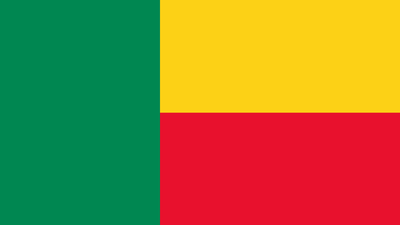Post-Election Violence in Benin Threatens One of Africa's Most Stable Democracies
The threat of authoritarian rule is rattling the country as demonstrators, calling for an annulment to Sunday's election, were met with live bullets and tear gas.
Protestors and police have clashed for a second day in a row following Sunday's elections in Benin.
Demonstrators have gathered in the economic capital of Cotonou since Wednesday, denouncing the election, which had a notably low turnout, and left opposition candidates out of the running. Many are in support of former leader Thomas Boni Yayi and are demanding the annulment of the vote and for incumbent President Patrice Talon to step down.
Police forces fired live bullets at protestors who were gathering in the capital, reports Al Jazeera. One woman died on Thursday after being wounded during a protest. The violence has largely quelled on Friday according to Yahoo News, but police forces have maintained their presence on the streets of Cotonou.
Videos being shared online appears to show polices forces shooting at demonstrators and dispersing water hoses and tear gas.
The post-election violence has come as a shock to some, as Benin has been considered one of the most stable democracies in Africa since its shift to democratic rule in 1990. "Democracy is precious to us, the people of Benin," one demonstrator told Al Jazeera. "That is why we have protested.
Talon, a former businessman who took office in 2016 and promised to modernize the country, is being accused of reinstating authoritarianism by changing the country's election eligibility requirements, which made it impossible for opposition parties to qualify and left only two parties with allegiances to him on the ballot.
Ahead of the election, the government initiated an internet block, which prevented citizens from accessing social media sites such as WhatsApp, Facebook, Twitter and Instagram.
Observers called the move an obvious encroachment on freedom of speech. "The decision to shut down access to the Internet and social media on an election day is a blunt violation of the right to freedom of expression," said François Patuel, Amnesty International's West Africa researcher. "It is effectively silencing human rights defenders, journalists and bloggers who are monitoring contested parliamentary elections without opposition candidates."
Several online are lambasting the government for its deadly use of force against civilians, while others are pointing out the worrying effects of
